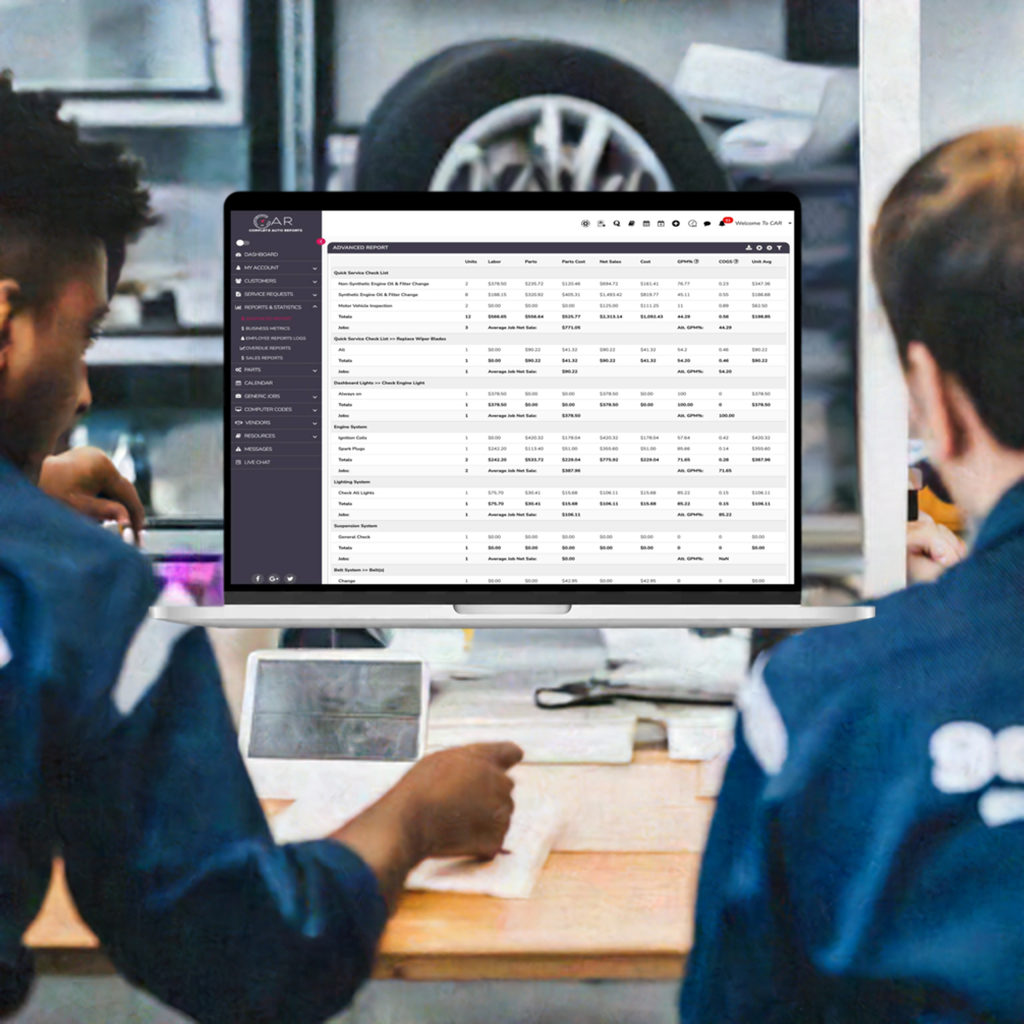WITHOUT THEM, YOUR EMPLOYEES DON'T KNOW WHAT COMES NEXT AND HOW TO EFFECTIVELY PERFORM THEIR JOBS.
The process, is often hijacked by two elements. The first element is service center employee(s) and their attitude(s) and the second element is the software your business uses.
Whether or not we realize it, each shop has a similar workflow process. Like many areas of life, we think that we are all unique in our business strategy. However, reality is we are all very similar, our differences lie in management styles. Our attitude and approach, from employees and customers, defines how we achieve success.
01
CHECK IN
When receiving a vehicle, it usually arrives one of three ways. The vehicle ends up in your possession; unannounced, broken down and is towed in, or there is an appointment. Once the vehicle has been checked in, regardless of the circumstance, it is then assigned to a technician.
02
INSPECTION
The most underrated and overlooked element of taking possession of a vehicle is the failure to properly inspect it. We detested the idea of “selling” customers and performing vehicle inspections without verifiable data. It made us feel like salesman instead of service advisers. At the Founder’s facility we weren’t too keen on wasting paper through inspection sheets, so we verbally communicated and/or emailed a lot of our findings to customers prior to building CAR.
03
ESTIMATE BUILDING
The most crucial element in the entire process. An accurate estimate will save everyone time and prepare the customer for what they may come to expect. As a rule of thumb, we recommend being as thorough as possible in your notes while building estimates. This allows some room for unforeseen problems that may arise.
04
CUSTOMER AUTHORIZATION
Without verbal or written authorization (each state varies, check your local laws), you can not and should not ever perform work on a customer’s vehicle. It is unethical to skip this step.
05
WORK IN PROGRESS
Once authorized, the technician can now start the job as the estimate has been written. Under most circumstances, there are not many changes made to an estimate. Most changes usually revolve around unforeseen circumstances and/or hardships encountered. However, anything over 5% of the original estimate should be clearly communicated to limit misunderstandings.
06
COMPLETION
Once a service is completed, the service adviser should review with the technician that nothing was forgotten. In this instance they should also check that there are no grease marks left on any body panels, no debris from the repair and/or dirty and messy interiors from work done on/in the vehicle. Vehicles should always be returned in the cleanest manner feasible.
07
Follow Up
After major repairs, it is always good to personally follow up. This shows that you care. In general, it’s good practice to follow up with every client and try to get feedback about their experience.







